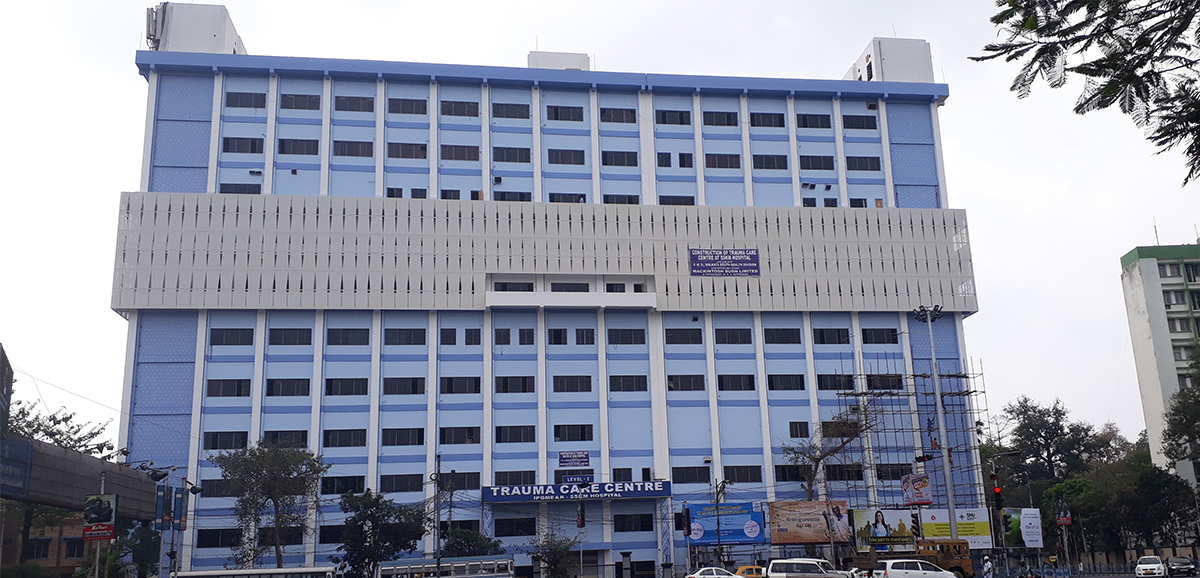March 15, 2019
Bangla ensuring ‘health for all’

The Health and Family Welfare Department, under the ministership of Chief Minister Mamata Banerjee has been one of the best-performing departments.
Achievements of the department:
Budget for ‘free treatment for all’ increased from Rs 296.16 crore in 2011-12 to Rs 1,231.52 crore in 2018-19
Number of beds in government hospitals increased by more than 28,000
Medical colleges
8 medical colleges started
5 government-run medical colleges coming up – in Cooch Behar, Raiganj, Rampurhat, Purulia and Diamond Harbour
5 government-run medical colleges in the process of being set up – in Tamluk, Barasat, Jhargram, Arambagh and Uluberia
The 10 medical colleges coming up to lead to an additional 1,000 MBBS seats
9,934 doctors appointed
22,369 nurses and health workers appointed
27 nursing training schools set up
42 super-speciality hospitals established for extending healthcare services to the district level
430 Su-Swasthya Kendras (Health and Wellness Centres) – upgraded versions of primary health centres (PHC) – operating in villages in eight districts, for imparting knowledge on preventing diseases and providing basic healthcare services
42 critical care units (CCU) and 26 high-dependency units (HDU) set up
Bangla now has 307 sick newborn stabilisation units (SNSU) and 69 sick newborn care units (SNCU)
[SNCU – from 6 in 2011 to 70 in 2018; SNSU – from 0 to 307]
Infant mortality rate (IMR) gone down from 32 in 2011 to 25 in 2018 [Definition: Number of deaths per 1,000 live births]
Maternal mortality rate (MMR) gone down from 113 in 2011 to 101 in 2018 [Definition: Number of maternal deaths per 100,000 live births due to causes related to pregnancy or within 42 days of termination of pregnancy]
12 paediatric intensive care units (PICU) fully functional, three more PICUs will be functional by September 2019
Critical Care Management and Information System (CCMIS) inaugurated, which will provide a detailed list of the vacancies in terms of general beds, and beds in critical care units (CCU) and high-dependency units (HDU)
Complete immunisation of children increased from 80% to 99%
16 Mother and Child Hubs (M&CH) being set up in hospitals with high caseloads for improving qualitative and quantitative improvements
Institutional delivery improved from 65% in 2010 to 97.5% in 2018
116 fair-price medicine shops set up for the general public
113 high-end fair-price diagnostic centres set up for the general public
They comprise 92 diagnostic units (17 MRI, 32 CT scan and 39 digital X-ray units) and 34 dialysis units
About 27 lakh people in the districts received free diagnostic treatment at these units since December 2016
Swasthya Sathi:Under this family health insurance scheme, where the entire premium for a family is borne by the State, 7.5 crore people from 1.5 crore families are enrolled
75% of the State’s population is covered by this scheme
One can avail free treatment for up to Rs 5 lakh per year, even in private hospitals
Swasthya Sathi smart cards are being issued in the names of female members of families; benefits of the scheme can be availed by the entire family as well as the woman’s parents
West Bengal Clinical Establishment Regulatory Commission constituted through the enactment of the West Bengal Clinical Establishments (Registration, Regulation and Transparency) Act, 2017 in order to provide transparent and affordable healthcare to the patients seeking private healthcare facilities
Initiative named ‘Exchange’ started to reach out to field-level functionaries of health services, wherein senior State officials visit districts and hold dialogues with officials ranging from DM and CMOH down to ASHA workers
Budget allotment for healthcare services increased by 14 times, to Rs 9,557 crore for FY 2019-20
